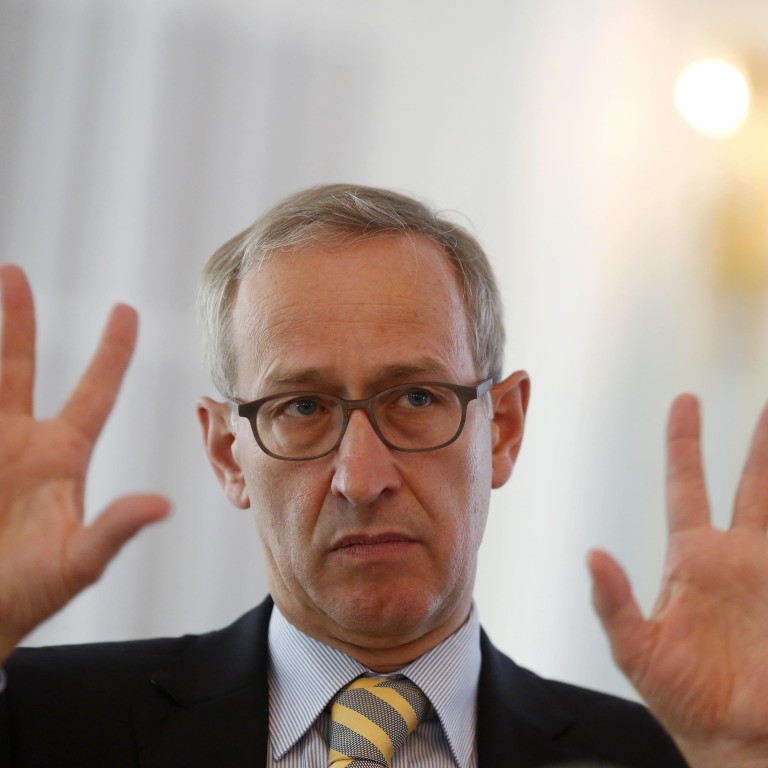
Swiss govt to decide soon whether to keep seeking US tax deal: top diplomat
Switzerland will decide soon on whether to keep pursuing a tax agreement with the United States, an outgoing top diplomat said, or risk extending a long, costly dispute over banks that shelter tax evaders.
The Swiss government is keen to reach a deal that satisfies US demands for data to help catch tax cheats and end a long-running dispute that has seen a handful of Swiss banks come under US investigation, while dozens more firms could find themselves in the spotlight for similar transgressions.
But there is a risk the talks could fall through, if Switzerland refuses to accept what sources told Reuters are further US demands, after Swiss lawmakers in June voted down a law that would have eased the transfer of client data for the entire industry.
That would prolong a scandal that has already cost the Swiss banking sector billions of francs in withdrawals and raise fears in Switzerland of further indictments like the one that felled Wegelin, the country’s oldest bank, earlier this year.
“A decision will be made shortly,” Michael Ambuehl, Switzerland’s top negotiator on tax matters, said on the sidelines of his last press conference on Monday.
“Both sides are trying to reach a deal soon.”
The 62-year-old Ambuehl, who is leaving the civil service to become a university lecturer on conflict management at the end of this month, didn’t elabourate except to say Switzerland would not enforce any emergency law to reach a deal or change its secrecy laws retroactively.
Ambuehl’s departure comes as Switzerland moves away from a “cherry-picking” strategy of striking individual deals, such as ones with Great Britain and Austria, in favour of broader ones.
For example, the Swiss government will work with other nations in developing an international standard for sharing data on foreign depositors, a move which would lift the last vestige of its tradition of banking secrecy.
Current talks with US officials centre on roughly a dozen banks under investigation, including Credit Suisse, Julius Baer, the Swiss arm of Britain’s HSBC, privately held Pictet and state-backed regional banks Zuercher Kantonalbank and Basler Kantonalbank.
The Swiss government has said it will grant these banks permission to hand over data to the United States that will allow them to avoid charges as they cut individual deals.
While the two governments wrangle over the terms of an overarching accord, Swiss banks not yet under investigation find themselves in legal limbo. They are keen to cooperate with US prosecutors to avoid an indictment, such as that which led to Wegelin’s demise, but they are unsure what information they can hand over.
A source at one bank targeted told Reuters last week that talks between the banks under investigation and the US Department of Justice are at a standstill because the DoJ cannot conclude an agreement without a legal framework for the entire Swiss banking industry.
UBS paid a fine of US$780 million in 2009 and delivered the names of more than 4,000 clients to avoid indictment, giving the US authorities the information that has enabled them to pursue other Swiss banks.

